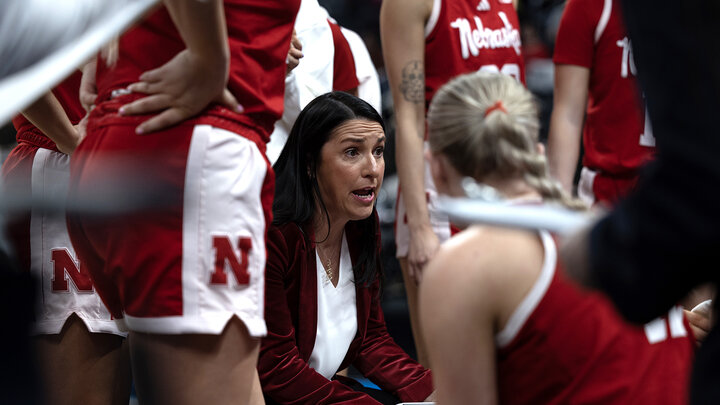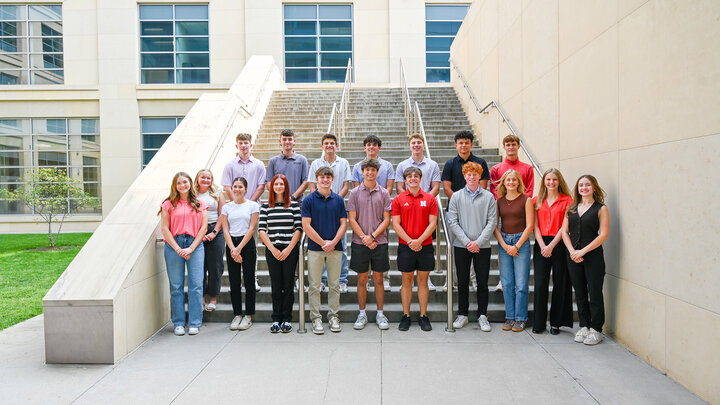The College of Business at the University of Nebraska–Lincoln earned reaccreditation by the Association to Advance Collegiate Schools of Business (AACSB) for an additional five-year period. One of the 17 AACSB charter members in 1916, Nebraska builds upon its more than 100-year history as a leading business school with this reaccreditation. Only 5% of all business schools globally receive the designation, a worldwide marker of quality in business education.
Nebraska's School of Accountancy also obtained reaccreditation, which requires the satisfaction of a supplemental set of standards specific to the discipline and profession of accounting. Fewer than 200 universities worldwide earn both accreditations in business and accounting.
"The AACSB accreditation is the yardstick by which all quality business schools are measured. To achieve it again speaks to the impact our faculty and staff provide and how our students are held to the highest standards in business education," said Dr. Kathy Farrell, James Jr. and Susan Stuart Endowed Dean of the College of Business.
Maintenance of accreditation is a process of rigorous internal focus, engagement with an AACSB-assigned peer-review team. During this multiyear period, schools focus on continual improvement that aligns with AACSB’s accreditation standards. Selected as part of a pilot group of 20 business schools, the College of Business adopted new 2020 AACSB standards used to elevate a business school's mission, operations, faculty qualifications and contributions, programs and other critical areas with a new focus on business and societal impact.
"Only a small group of business schools will be reviewed this year by these new standards, and we're honored to be one of them," Farrell said. "Our AACSB peer-review team familiarized themselves with our college from extensive principle-based reports. We also adapted to a two-day virtual visit that impacted how we delivered information about our college to the review team. One of these changes included creating a virtual tour of Howard L. Hawks Hall, which provided the review team with an opportunity to assess our physical resources and allowed us to tell our story in a more meaningful way."
After the extensive virtual visit by AACSB, Nebraska received numerous commendations, including:
- The AACSB team was impressed with the college's commitment as a strengths-based business school. The Clifton Strengths Institute and Clifton Builders program provide a one-of-a-kind opportunity for students to identify their strengths in their first year and work to build on them throughout their educational journey.
- They commended the college-based Teaching and Learning Center. The center provides significant support in course design and teaching-related seminars for faculty, and free tutoring services for students. The center's instructional designers play a large role in online course design for the college's top-ranked MBA@Nebraska and other online business graduate programs.
- AACSB praised Nebraska for its strategic utilization of professors of practice who focus almost exclusively on the college's teaching mission. Professors of practice deliver quality instruction to Nebraska Business students primarily in undergraduate business programs. The Employer in Residence program, coordinated by the Business Career Center, was called out as particularly noteworthy. Students can meet a different employer every day in Hawks Hall. Employers host information booths, give presentations and offer resume reviews during their day on campus.
- The School of Accountancy developed several innovative practices in recent years including launching the Discover Accounting summer program for rising high school seniors to learn about the accounting profession; establishing a student chapter of the National Association of Black Accountants; creating an internship program that allows students to participate in busy season internships while maintaining full-time academic status; and designing new required classes in writing and communication as well as data analytics.
"These examples are only part of what makes Nebraska Business a leader in business education. I’m extremely proud of what the college accomplished over the last five years and the tremendous momentum we have moving into the next five-year review cycle. Our accomplishments happen because of a shared commitment to the college's mission of driving discovery, creating opportunity and empowering individuals to lead the future of business," said Farrell.
To learn more about the College of Business and its academic programs, visit: https://business.unl.edu.




